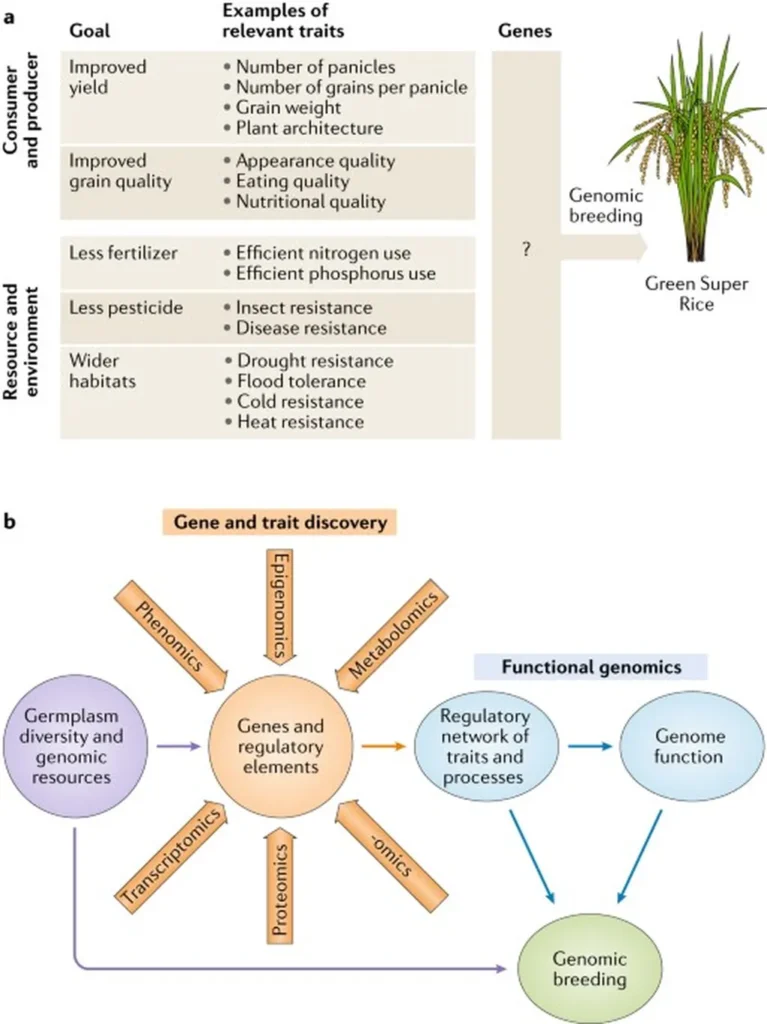In the ever-evolving landscape of agricultural biotechnology, a recent study has shed light on a gene family that could hold the key to enhancing rice’s resilience against environmental stresses. Published in *Frontiers in Plant Science*, the research, led by Lyu Wu from the Northeast Agricultural Research Center of China, delves into the Kiwellin (KWL) gene family, a group of genes previously linked to stress responses in plants but largely uncharted in rice.
The study systematically analyzed the KWL family across three rice species: *Oryza sativa ssp. japonica*, *O. sativa ssp. indica*, and *O. rufipogon*. The team identified a total of 33 KWL genes, with a notable distribution of 9 in *japonica*, 12 in *indica*, and 12 in *rufipogon*. This comprehensive genome-wide analysis revealed that KWL proteins are highly conserved within rice species but distinct from their counterparts in maize and tomato, suggesting a unique evolutionary path for rice.
One of the most intriguing findings was the significant enrichment of promoter cis-elements associated with biotic and abiotic stress responses and phytohormone signaling. “This indicates that the KWL family might play a crucial role in rice’s adaptive mechanisms to environmental stresses,” Wu explained. The expression profiling of these genes showed that most family members exhibited low or tissue-specific expression, with OsKWL1 and OsKWL2 standing out due to their marked responsiveness to abscisic acid (ABA) and jasmonic acid (JA) treatments in roots and shoots, respectively.
The subcellular localization experiments confirmed that both OsKWL1 and OsKWL2 proteins were localized to the cytoplasm. Moreover, yeast assays revealed that OsKWL1 possessed strong autoactivation activity, hinting at its potential role in regulating gene expression.
The implications of this research for the agriculture sector are profound. Rice, a staple food for more than half of the world’s population, is often subjected to various environmental stresses that can significantly impact yield. Understanding the KWL gene family’s role in stress adaptation could pave the way for developing rice varieties with enhanced resilience. This could be a game-changer for farmers, particularly in regions prone to environmental stresses, leading to more stable and predictable harvests.
The study also opens up new avenues for further research. As Wu noted, “This work establishes a foundational framework for future functional investigations of the KWL family in rice.” Future studies could explore the precise mechanisms by which these genes confer stress resistance and how they can be harnessed for crop improvement.
In the broader context, this research underscores the importance of genome-wide studies in uncovering the genetic basis of plant resilience. As we face the challenges of climate change and a growing global population, such insights are invaluable for ensuring food security and sustainability.
The study, “Genome-wide identification and functional characterization of the KWL gene family in three Oryza species,” was published in *Frontiers in Plant Science* and was led by Lyu Wu from the Northeast Agricultural Research Center of China, Jilin Academy of Agricultural Sciences, Gongzhuling, China.

